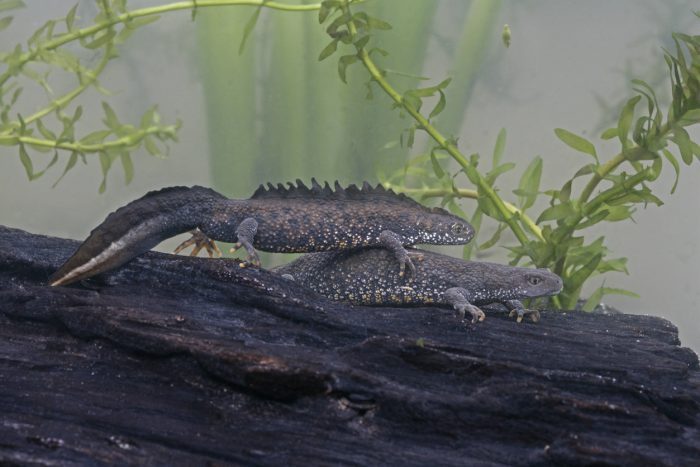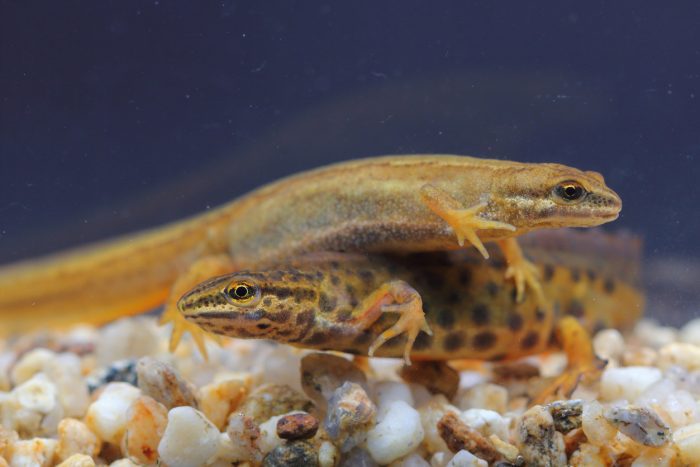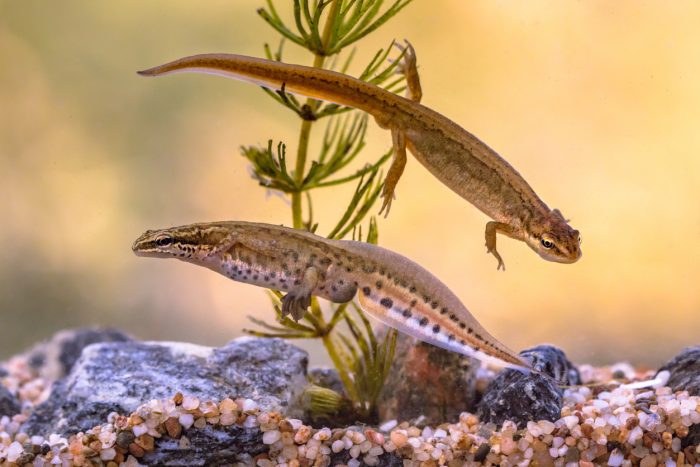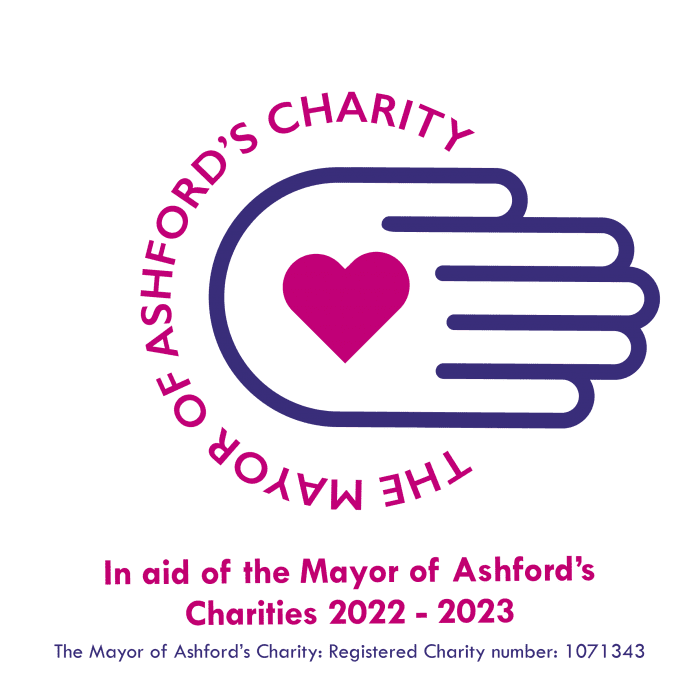

Great-crested newt. Credit: istock/MikeLane45
Here, at the Centre, we are lucky to have a healthy pond inhabited by a range of plants and creatures. Both the Greater Crested and Smooth Newts have been spotted living and breeding in our pond.
Ponds have standing water that provides a habitat for a wide range of plants and animals. Two-thirds of all freshwater species live in a pond habitat.
As well as the animals living within and around ponds, they also support other mammals and birds by providing essential food and water. Ponds support a greater range and number of invertebrates than rivers.
There are three species of newt native to the UK:
The darkest of the three newt species, Great Crested Newts have bumpy skin and bright orange bellies with large dark spots. Males have a toothed crest along their backs during breeding season. Adults can reach up to 17cm. Females are larger than males. Great Crested Newts and their habitats are protected by law due to their dwindling numbers.

Smooth newt. Credit: istock/Zdenek Macat
Often called the Common Newt, the Smooth Newt is brown in colour with spotty orange bellies. The black spots extend up the throat. The males have a wavy crest along their backs during breeding season. Adults can reach up to 10cm.
The Palmate Newt is similar in size and colouring to the Smooth Newt. Male Palmate Newts have pink or yellow throats and, unlike the Smooth Newt, they do not have spots on their throats. Males have black webbing on their back feet. Adults can reach up to 9cm.

Palmate newt. Credit: istock/creativenature_nl
Newts are amphibians and so spend time on land as well as in the water. During the winter months they can be found in damp, sheltered places such as beneath rocks or logs. They return to the water for breeding season.
Kent Reptile and Amphibian Group (KRAG) https://kentarg.org/

The information board is kindly sponsored by The Mayor of Ashford’s Charity and International Biodiversity Consultants Ltd
